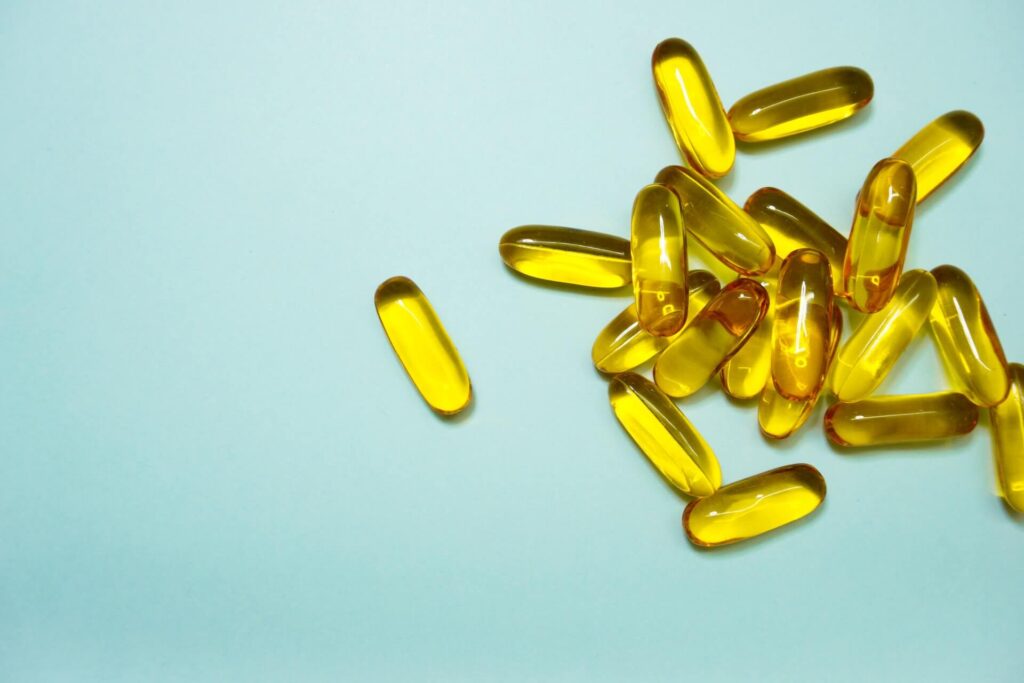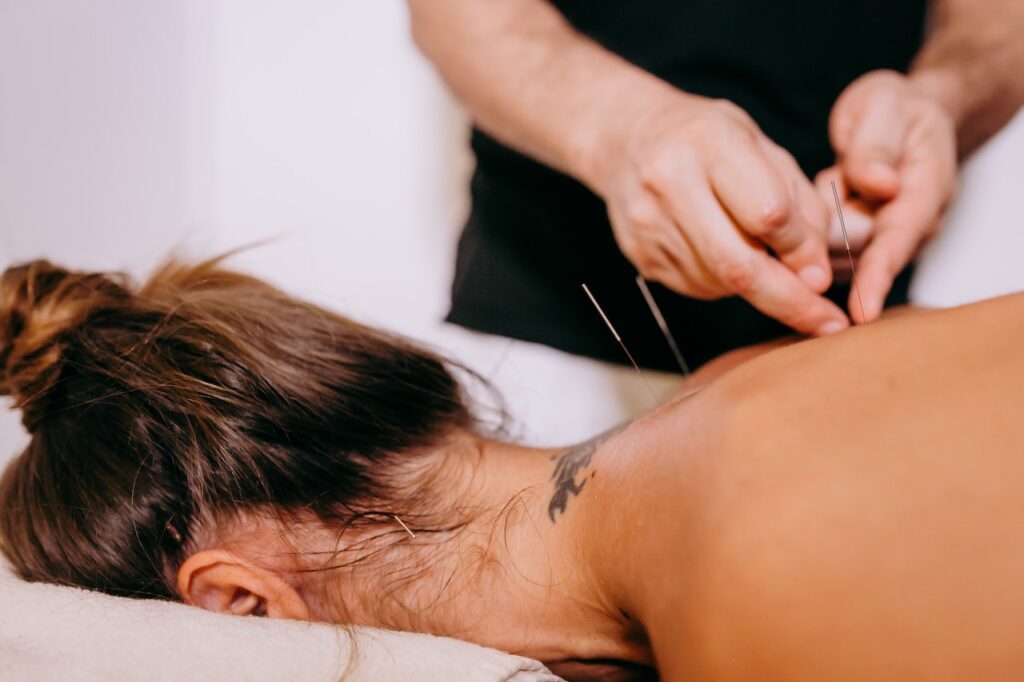PCOS is a hormonal disorder that affects 116 million women worldwide. If you’re one of them, you know how frustrating it can be to live with. Between weight gain, irregular cycles, acne, and hair loss, PCOS symptoms run the gamut.
Traditional PCOS treatment involves medications to improve insulin levels and regulate hormones. Yet many people prefer a prescription-free approach. Fortunately, many natural treatments can help ease symptoms. In this article, we’ll cover seven ways to treat PCOS naturally.
What is PCOS?
Polycystic ovarian syndrome (PCOS) is a hormonal imbalance that affects around 1 in 10 women of reproductive age. It’s one of the leading causes of infertility.
Women with PCOS often have high levels of androgen (male hormones). This hormonal imbalance can lead to problems with ovulation. Inflammation and insulin resistance are also common among women.
In addition, some, but not all women with PCOS have ovarian cysts. Hence the name polycystic ovarian syndrome.
Symptoms of PCOS
Common PCOS symptoms include:
- Missed or irregular periods
- Infertility
- Depression and anxiety
- Acne
- Weight gain, especially in the belly area
- Excessive hair growth on the body (hirsutism)
- Large ovaries or ovarian cysts
- Hair loss resembling male pattern baldness
- Skin tags (flaps of extra skin) near the armpit or neck
- Dark skin patches on the armpits, groin, neck, or under breasts
Some women with PCOS experience many symptoms. Others may have none at all. You may start to see your weight slowly creep up – or have trouble losing weight. Or you may have difficulty getting pregnant but don’t know why.
If you suspect you have symptoms, check with your OBG-YN. They can run tests to see if you fit the diagnosis.
Natural Ways to Treat PCOS
Conventional treatment for PCOS consists of medication that affects insulin and other hormones. But many people today are opting for a more natural approach.
Luckily, many lifestyle habits and holistic remedies can help the body come into balance. Here are seven ways to ease symptoms:

1 – Follow a PCOS diet
The first step to treating PCOS naturally is to change your diet. Here are a few PCOS-friendly diet tips to keep in mind:
Balance your blood sugar
As mentioned, women with PCOS tend to have higher levels of insulin, the hormone that lowers blood sugar. That’s why keeping your blood sugar balance is crucial with PCOS.
Here are a few ways to do that:
- Avoid sugary foods & simple carbs. This includes white bread, white pasta, white rice, cookies, pastries, cereal, etc. These foods can spike your blood sugar.
- Upgrade your carbs. Complex carbs like fruits, veggies, and whole grains are high in fiber, so they’re easier on your blood sugar than simple carbs.
- Eat carbs with protein or fat. Protein and fat slow the digestion of glucose and can reduce blood sugar spikes from carbs. So avoid eating carbs “naked.” Always eat them with some protein or fat. Or ideally, both!
Eat anti-inflammatory foods
Chronic low-grade inflammation is common among those with PCOS, which can disrupt hormones. To keep inflammation in check, eat plenty of anti-inflammatory foods like:
- Fatty fish including salmon, sardines & tuna
- Antioxidant-rich fruits like blueberries, cherries & blackberries
- Leafy green vegetables like kale, spinach & arugula
- Nuts and seeds
- Beans and legumes
- Olive oil
Avoid processed foods
Processed foods and excess sugar can cause inflammation and increase insulin sensitivity. So avoid them as much as you can. Opt for whole foods as close to nature as possible such as fruits and veggies.
2 – Avoid EDCs

Endocrine-disrupting chemicals (EDCs) are everywhere these days. They’re in plastic food containers and water bottles and even personal care products like lotion and shampoo.
As the name suggests, EDC exposure can disrupt your hormone balance. Research shows women with PCOS have higher levels of EDCs than women without fertility issues. That’s why reducing EDC exposure is a crucial step in treatment.
So how do you ditch EDCs? Here are a few ways:
- Toss plastic food storage containers and replace them with glass.
- Avoid drinking from plastic water bottles. Consider investing in a stainless steel one instead.
- Switch out your personal care products and cosmetics for natural, non-toxic versions. Use EWG’s Skin Deep database if you need guidance.
- Buy organic as much as possible. Conventional produce is sprayed with pesticides that can affect hormones.
3 – Maintain a healthy weight
Many women with PCOS carry extra weight, especially around the belly. The trouble is, that excess body fat disrupts your hormones, including insulin and androgens. This can make it more difficult for women with PCOS to lose weight. It’s the ultimate catch-22.
Fortunately, even minor weight loss can make a difference. Research shows losing just 5% of your body weight can be enough to ease symptoms.

4 – Exercise
Staying active is a must for PCOS. Exercise reduces inflammation, improves glucose metabolism, boosts your mood, and supports a healthy weight.
Some of the best exercises for PCOS include:
- Aerobic exercise like walking, jogging, swimming, and hiking.
- HIIT workouts are shown to improve insulin resistance. HIIT workouts combine short bursts of high-intensity cardio with longer rest periods.
- Strength training is found to improve androgen levels in women with PCOS. Strength training also helps you build muscle. This can help with weight loss since muscle burns more calories than fat.
- Mind-body exercises like yoga, tai chi, and pilates may help lessen PCOS symptoms like depression and anxiety.
Keep in mind that intense exercise can disrupt hormone balance. So don’t overdo it. Start slow and work your way up gradually.
5 – Manage stress

Reducing stress is crucial in managing PCOS. Women with PCOS tend to have higher levels of the stress hormone cortisol. Chronic stress also increases inflammation, which is linked with PCOS.
To keep stress at bay, set aside time for daily relaxation. Yoga, meditation, deep breathing, and time in nature are all proven stressbusters.
Quality sleep should also be a top priority. Getting enough sleep reduces stress and promotes hormone balance. Aim for at least 7-8 hours of sleep every night.
6 – Supplements
Loads of herbs and supplements can help ease PCOS symptoms. While we can’t cover them all here, let’s touch on a few:
Inositol

Inositol is a type of sugar that helps improve insulin resistance. Research shows supplementing with inositol may improve insulin sensitivity, reduce androgens, and help regulate the menstrual cycle.
Chromium
Chromium is a trace mineral that enhances the effects of insulin. This may explain why chromium deficiency is linked with insulin resistance. Studies show supplementing with chromium can help lower blood glucose and improve insulin sensitivity.
Vitex
Vitex, also known as chasteberry or chaste tree, is an herbal remedy used for PMS. Research suggests it may help balance progesterone and estrogen levels in the body. Vitex has been shown to improve menstrual regularity in women with infertility issues.
Cinnamon
Cinnamon extract is shown to decrease inflammation and improve insulin sensitivity. There’s even evidence it may improve menstrual regularity in women with PCOS.
Black cohosh
Black cohosh is an herbal remedy that’s often used for female infertility. Some studies suggest it may improve pregnancy rates for women with PCOS.
7 – Try acupuncture

Acupuncture is an alternative health treatment that’s shown success with PCOS. Research shows acupuncture can help reduce cortisol levels and improve insulin sensitivity. Acupuncture can even improve blood flow to the ovaries and promote weight loss.
Relieve Your PCOS Symptoms with Acupuncture in Orland Park, IL
If you live in the Chicago area and are tired of struggling with PCOS symptoms like infertility and weight gain, we’re here to help.
At Anchored in Health, we take a holistic approach to PCOS treatment. We combine acupuncture with targeted nutrition and supplements to restore balance to your hormones.
If you’re ready to ease your PCOS symptoms naturally, follow these steps:
- Contact us with questions.
- Book your first acupuncture session here.
- Experience how acupuncture can help regulate your hormones and ease PCOS symptoms.
Other Alternative Health Services Offered at Anchored in Health in Orland Park, IL
At Anchored in Health, we offer a wide range of wellness services to support your health. This includes functional medicine, chiropractic care, massage therapy, and the Shape ReClaimed program. We even offer holistic assessment tools like genetic testing and thermography.
Contact us to find out how we can help you improve your health and well-being. And visit our blog for more helpful health tips.
Disclaimer: The information provided on this blog is for educational and informational purposes only and is not intended to diagnose, treat, cure, or prevent any disease. The content is not a substitute for professional medical advice, diagnosis, or treatment. Always seek the guidance of a qualified healthcare provider with any questions you may have regarding your health or a medical condition.
Reading this blog does not establish a doctor-patient relationship between you and Anchored In Health or any of its practitioners. Reliance on any information provided in this blog is solely at your own risk. For medical concerns, always consult a licensed healthcare provider.
References
- https://www.sciencedirect.com/science/article/pii/S266639612100008X
- https://www.webmd.com/women/what-is-pcos
- https://www.hopkinsmedicine.org/health/conditions-and-diseases/polycystic-ovary-syndrome-pcos
- https://pubmed.ncbi.nlm.nih.gov/29177240/
- https://jamanetwork.com/journals/jamainternalmedicine/fullarticle/2757497
- https://www.ncbi.nlm.nih.gov/pmc/articles/PMC4086778/
- https://www.nichd.nih.gov/health/topics/pcos/conditioninfo/treatments/relieve
- https://www.nature.com/articles/s41598-024-51832-y
- https://www.ncbi.nlm.nih.gov/pmc/articles/PMC7739243/
- https://www.ncbi.nlm.nih.gov/pmc/articles/PMC5843960/
- https://pubmed.ncbi.nlm.nih.gov/11431132/
- https://www.sciencedirect.com/science/article/pii/S2213398423001136
- https://reproductive-health-journal.biomedcentral.com/articles/10.1186/s12978-021-01073-3
- https://www.ncbi.nlm.nih.gov/pmc/articles/PMC1204764/
- https://pubmed.ncbi.nlm.nih.gov/28595797/
- https://www.ncbi.nlm.nih.gov/pmc/articles/PMC10065776/
- https://bmccomplementmedtherapies.biomedcentral.com/articles/10.1186/1472-6882-14-511
- https://www.ncbi.nlm.nih.gov/pmc/articles/PMC2901047/
- https://pubmed.ncbi.nlm.nih.gov/20230329/
